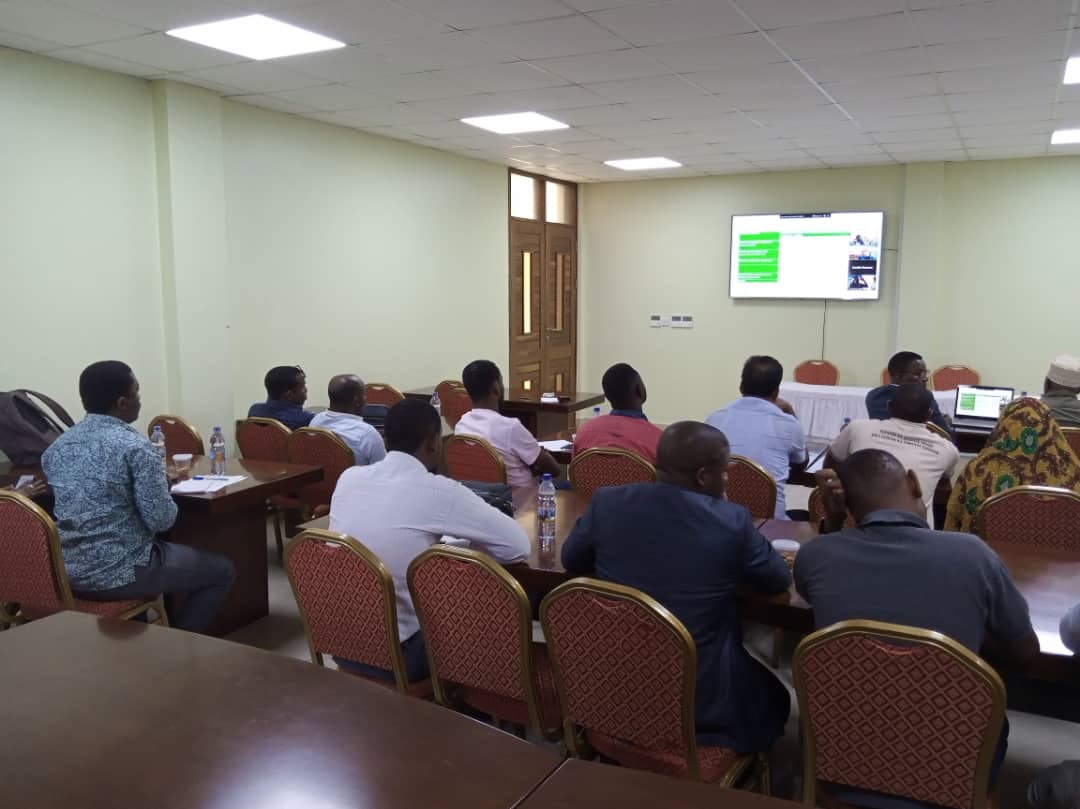Nairobi, 15 October 2020 - UN-Habitat successfully held the virtual workshop “Implementing the UNDA Urban-Rural Linkages Project in the light of COVID-19 pandemic” as one of its Urban October events. More than 50 participants attended the workshop, including national and local government officials, NGO and private sector representatives, youth representatives, academics and researchers from Niger State of Nigeria and Zanzibar.
This virtual workshop is a continuation of the implementation of the UN Development Account funded project “Leaving No Place Behind- Strengthening Urban-Rural Linkages in Africa”. The four-hour workshop shared the outcomes of previous workshops, presented and discussed the impacts of COVID-19 in each country and proposed way forward for the project aiming to address issues arising from the pandemic by strengthening urban-rural linkages.
Mr. Barr Mukhtar Nasale, the Commissioner of the Ministry of Land and Housing of Niger State, delivered welcome remarks and expressed the State’s commitment to the implementation of the project. Mr. Mohammad Habib, Director of Department of Urban and Rural Planning Commission for Lands, Zanzibar and Mr. Makame A. Muhajir, Urban Policy consultant from Zanzibar showed their appreciation for UN-Habitat’s continuous support for the promotion of Urban-Rural Linkages in Zanzibar.

The outcomes of a previous workshop that took place in Zanzibar in 2019 were presented, including the relevant Urban-Rural Linkages Guiding Principles identified in each country and the challenges hindering the connectivity and flow of resources and services between urban and rural areas. Recommendations to overcome the identified challenges were as well identified by participants.
The teams from both the Niger State and Zanzibar also presented the challenges they’ve faced during the pandemic across the urban-rural continuum. Niger State has suffered from a drastic decline in rural investment and the disruption of food supply chains due to restrictions on mobility. Dr. Abdul Husaini further introduced the inadequate access to medical facilities and limited humanitarian access in rural areas. In Zanzibar, the pandemic has exposed the issue of lack of ICT facilities in rural areas, affecting governmental services, and impacting education services. As a country whose economy heavily depends on its tourism industry, the drastic decline of tourists has taken a toll on the income of many. It was also signaled that the pandemic reduced rural to urban migration, slowing down the urbanization process in Zanzibar.
After the presentations, both teams were given the time to discuss possible activities to accommodate COVID-19 crisis and revised action plan, as well as to identify pilot projects. Zanzibar identified improving rural infrastructure, produce storage and transportation and ICT facilities as their priorities. Niger State proposed possible pilot projects in sustaining the supply chain of agricultural produce and strengthening rural healthcare system. The importance of engaging rural communities in the planning process was also highlighted. As a conclusion, participants asserted the importance of multi-stakeholder, multi-sector, multi-level interventions and engagement for strengthened urban-rural linkages so no one and no place will be left behind.